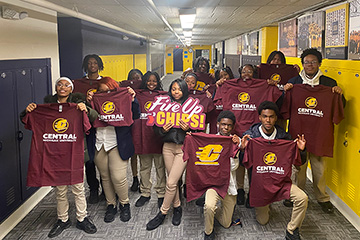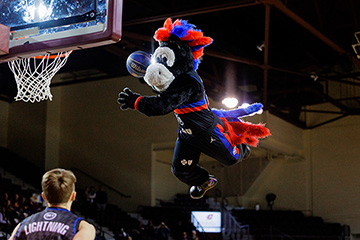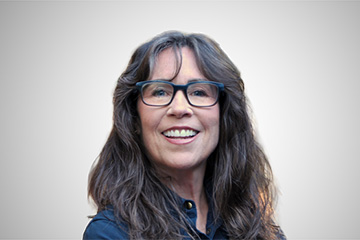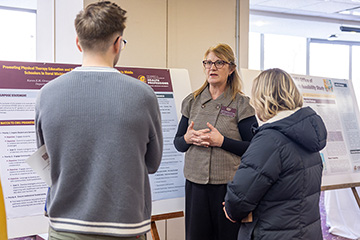Community is part of social work program’s DNA
Welcoming process helps prepare students for careers helping people
Breanna Bressette first realized there was something different about the social work program when she was hungry.
She and a friend were in a class, discussing finding something to eat. The instructor pointed them to the program’s office.
They went to the office, Bressette said. It was bright and cheery. It was open and welcoming. Best of all, there were snacks.
Bressette was in her first semester as a new transfer student and new to the program. After two years of online courses, she said she was also adapting to in-person classes. Visiting the social work program’s office helped her adjust. The snack had a more immediate benefit.
“You cannot learn if you’re hungry,” she recalled the instructor telling her.
The instructor that day was Susan Grettenberger, director of the social work program. Grettenberger said the snacks – and the office – are an extension of the program’s philosophy.
“What we try to do is build relationships,” Grettenberger said.
Building those relationships starts before students are officially enrolled in the class. It starts with phone calls and meetings with prospective students.
Once in the program, faculty keep in close contact with their students, she said. If a student starts to fall behind, they try to figure out why.
It isn’t just making sure the student gets back on track academically, she said. A problem in a personal life might bleed through into classroom performance and social workers are trained to care about the whole person.
“We really prioritize this because it’s part of our DNA as faculty,” Grettenberger said.
Bressette said that concern makes it easier for social work students to approach the faculty if they have problems with an assignment.
They also form bonds with the other social work students. They move through the courses as a group, she said.
During breaks, they frequently visit the social work office suite, the program’s hub. It has a reputation for being a particularly welcoming space. In addition to the snacks, there’s coffee, a mindfulness corner and places to sit and relax.
The goal is to create a “physical environment that lets students know – whatever their identity – they are welcome,” Grettenberger said. “The office is intentionally welcoming, but also personal.”
Part of the glue that holds the office together is Executive Office Specialist Jacqui Pridgeon. Faculty might help students with their academic work, but Pridgeon does everything else, Bressette said. That includes helping students iron out snafus in their schedules.
Grettenberger said that Pridgeon plays a key role in making students feel welcome.
Graduating seniors are recognized during a final meal send-off, bookending their experience in the social work program.
The dinner isn’t the only ceremony that helps build community within the social work community. A convocation ceremony at the start of the academic year recognizes seniors as they are about to leave for internships.
Juniors are officially brought into the program during the ceremony. They are given a pin that identifies them as students in the program. They also take an oath that pledges only to do good.
The ceremony helps connect students to the program. It’s also a reminder that the reason they’re there is bigger than CMU’s social work program.




